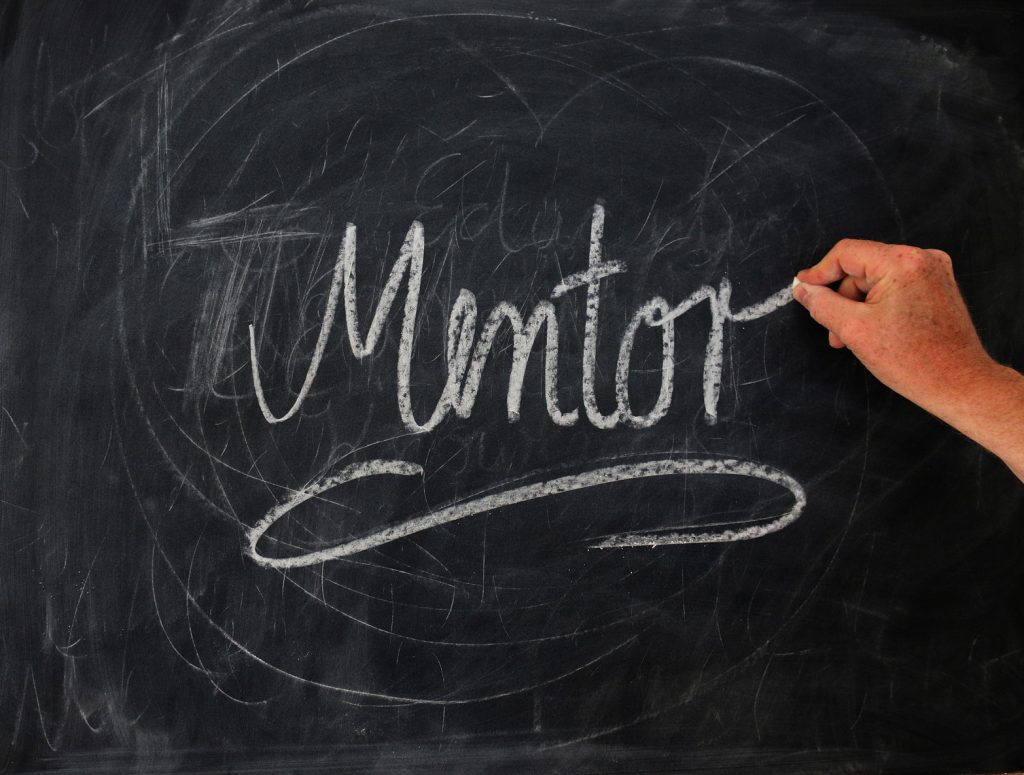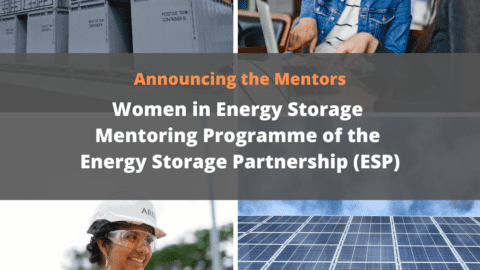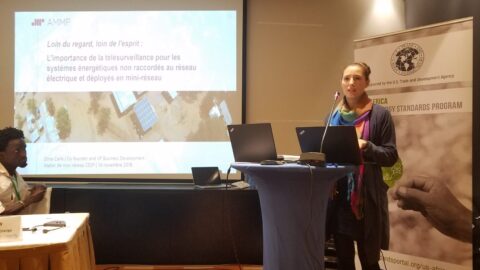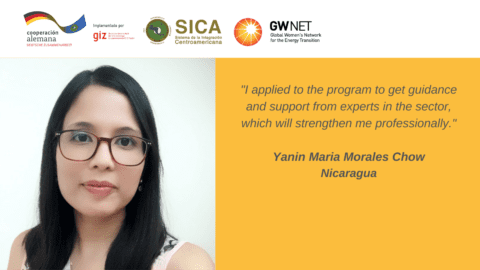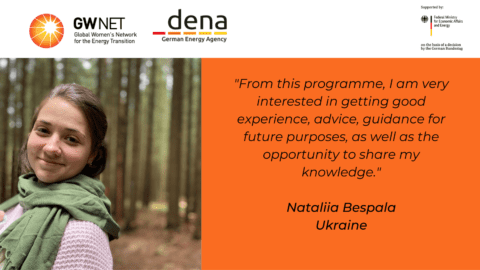GWNET brings you the 17th instalment of the “Meet the Women in the Energy Transition” series which celebrates the work and achievements of the women who are part of GWNET’s 2/2019 Mentoring Programme. This mentoring programme contains 22 mentee-mentor tandems, with mentees from over 15 countries. Meet GWNET mentor, Christine Lins. Christine Lins is the Co-Founder and Executive Director of GWNET. Her professional journey over the past twenty-three years has been to advance the energy transition with renewables and energy efficiency, beginning at a regional level in her home country Austria, then expanding to the European and then global level.
1) Tell us a little about yourself. What do you love most about what you do?
Each stage of my career has been exciting, intense and personally very rewarding. Not only have I met many passionate people and worked with different countries and cultures, I have also witnessed how the energy transition changes people’s lives for the better and the profound impact it has and will have on how we produce and consume energy in the future. A lot has happened over these past two decades; however, I am convince that the best is yet to come.
2) What were your goals when you started working in sustainable energy? Have these evolved?
My motto in life can be summarised with the famous quote “Be the change you want to see in this world” from Mahatma Ghandi. My goal of making this planet a more sustainable place has remained the same, however, today it feels much more achievable than 20 years ago: I have witnessed the rise of renewable energy from a niche sector to one that is both mainstream and the central pillar of decarbonising the energy sector.
Two decades ago, no one imagined that renewable energy would account for 70% of net additions to global power generation capacity and that investment in new renewable power capacity would be roughly three times that of new fossil fuel capacity. And no one thought that discussions about 100% renewables by mid-century would gain increasing attention in the public arena.
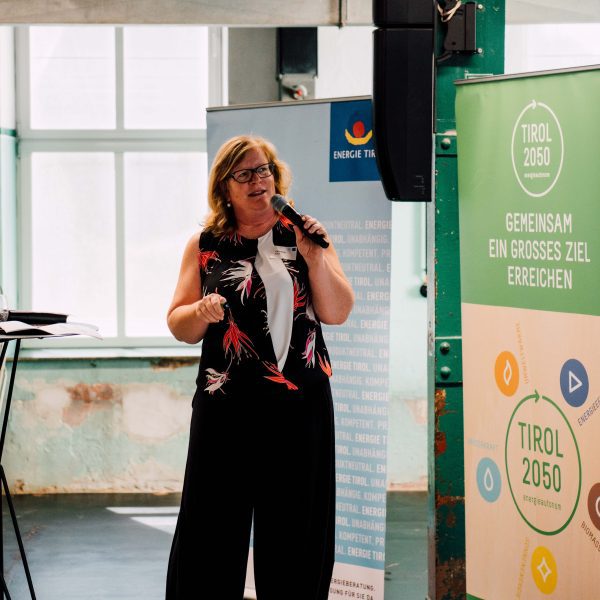
3) What are the opportunities for sustainable energy growth in your country?
Opportunities are manifold, however, the progress made so far is not enough to bring us even close to reaching the objectives of the Paris climate agreement to hold the global average temperature rise well below 2°C, not to mention a much safer limit of 1.5°C. Energy-related CO2 emissions are still on the rise.
The rapid renewables uptake in the power sector shows that the energy transition with renewables and energy efficiency is possible, but we need to do more in the fields of heating and cooling as well as transport, and we need to better integrate planning policies and regulatory frameworks. And we need to close the access gap that still exists in the world to provide sustainable energy access for all as quickly as possible.
4) What challenges have you faced in the sector? Can you tell us how you overcame (or are overcoming) these challenges?
In order to succeed, you need stamina to stick to your ideals. The energy transition does not happen overnight, it is a complex process involving many actors, so working in this field is sometimes tiring and requires patience.
In general, it is important to have a bit of luck and to be at the right place at the right moment in time. And sometimes, you have to stand up for your ideas and defend them, against all odds. However, I am convinced that if you are passionate and to a certain degree optimistic about a subject, you will overcome all sorts of barriers.
5) Why did you join the GWNET Mentorship Programme? What do you hope to achieve?
I joined GWNET’s mentoring programme as a mentor, as I am convinced that the privileged exchange between mentee and mentor has transformative power.
For the mentee, it is a great opportunity to get valuable insights from a seasoned professional, for the mentor it is interesting to get to know another perspective and reflect on their own career path. I was lucky to have outstanding mentors in my career, so volunteering in the programme is also a bit about giving back.
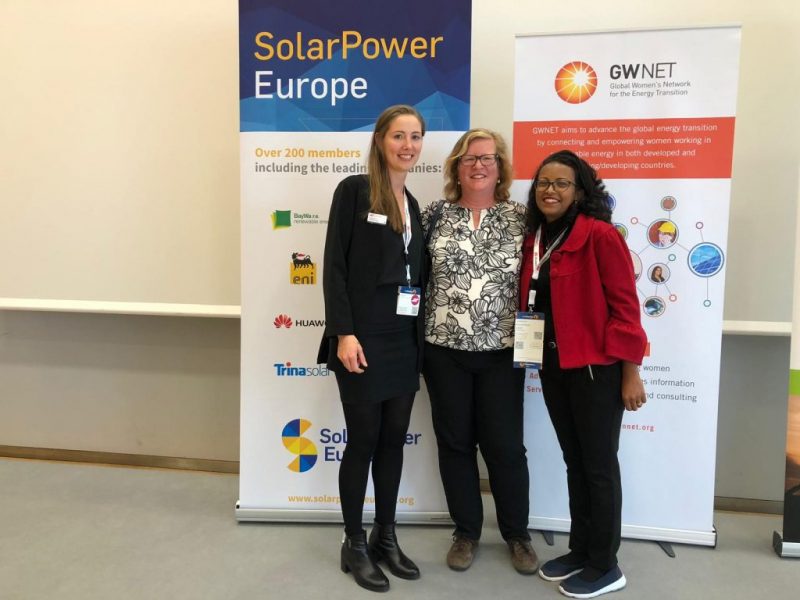
6) What advice would you give to women hoping to join the sustainable energy sector?
Whatever sector you decide to build your career in, it is important that you feel passionate about your area of work. I consider myself very lucky to have found my happiness in the sustainable energy sector. If you feel the call for this domain, go for it, just one warning: your choice might be contagious!
If you are interested in knowing more about GWNET’s mentoring programmes, this comprehensive article outlines our work in this area.
Become a mentor – what’s in it for you?
GWNET is looking for senior professionals who are eager to make a difference and have a positive impact on a younger woman’s career in the energy sector. With the ever-changing dynamics of the business fields, digitalisation, knowledge and knowledge sharing has become more important than ever. As a mentor, you get the opportunity to give something valuable back to more junior professionals and to expand your own knowledge through your mentees’ perspective. Mentoring will contribute to personal and professional development for both you and your mentee, as well as, shaping the direction of future generations within your field of expertise.
If you are interested in volunteering as a mentor in one of GWNET’s mentoring programmes (which involves approx. 1 – 1.5 hours of engagement per month plus optional participation in knowledge-transfer webinars), kindly fill-in the Mentor Datasheet.


